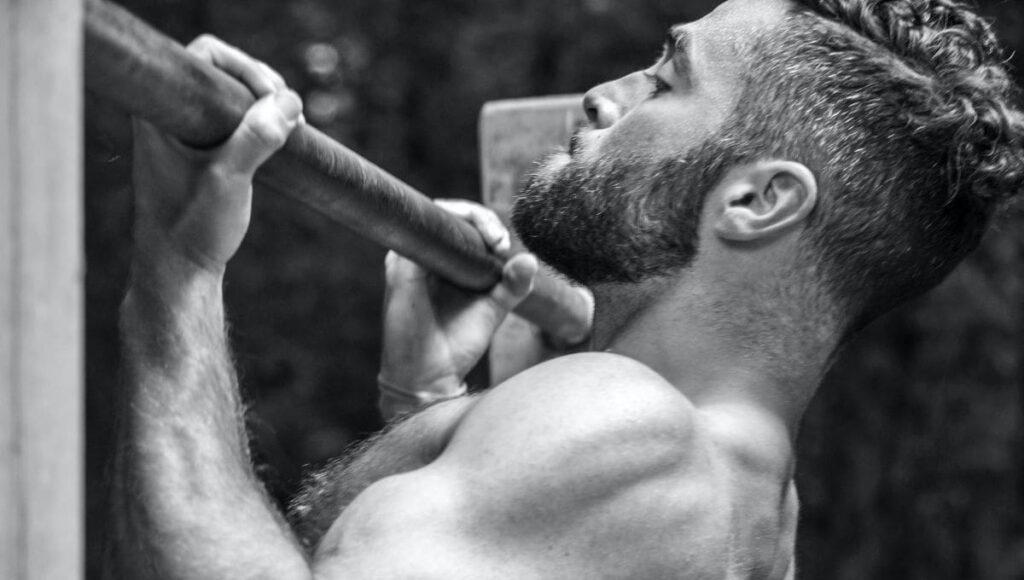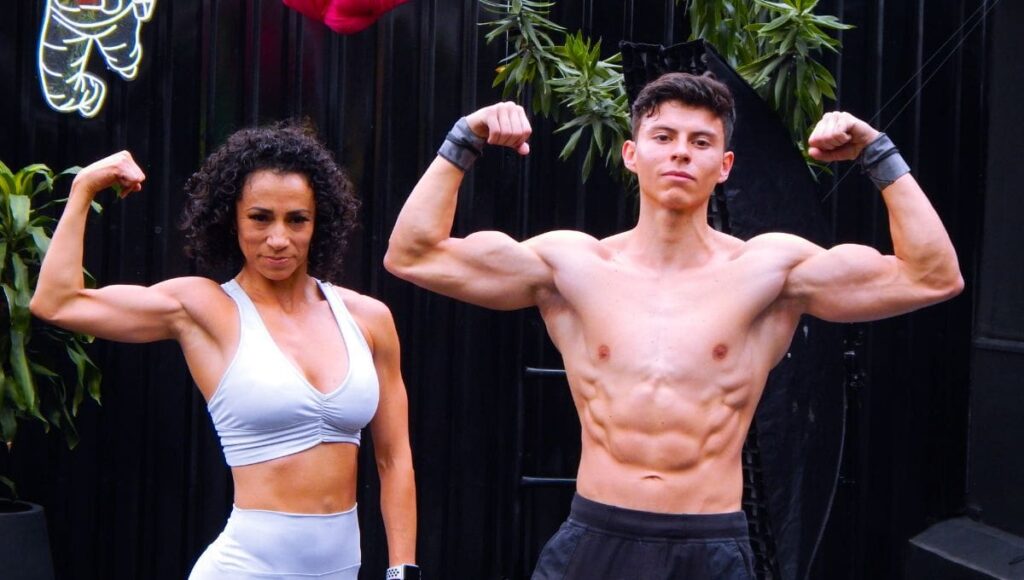Have you been overlooking this way of training your whole life?
You have to curl to get big guns. Or not. Why the best exercise for your biceps is not curls you will find out here.
Ask anyone, right now, what is the best exercise for biceps and I guarantee that 99 per cent of those people will answer it is some kind of curl, possibly the barbell curl. But that is not the case according to Sal Di Stefano from the Mind Pump Podcast.
The Mind Pump Podcast is an online radio show that talks all fitness related and, usually, is provocative. Its hosts are Sal Di Stefano, Adam Schafer, Justin Andrews, and Doug Egge. They also have a YouTube channel with more than 300k subscribers.
Di Stefano explains why the best bicep exercise is not curls.

Why The Best Bicep Exercise is NOT Curls
Why the best bicep exercise is not curls, contrary to what people believe? For that answer, Di Stefano talks about how he came up with this elucidating answer.
According to him, it all started when a gymnast worked for him as a trainer. If you don’t know, gymnasts usually have gigantic biceps although they do little bodybuilding in the gym. So Di Stefan asked him what he did for his biceps to be so big. The answer is chin-ups.
“That’s a back exercise,” Di Stefan replied to the gymnast. “He goes, ‘no it’s a bicep exercise if you do it like this’.”

According to Di Stefano, the gymnast jumps on the bar, gets a curl grip and rather than pulling his chest to the bar, “he does this kind of like compound lift for his biceps.”
The mentality of why the best bicep exercise is not curls, but rather chin-ups has a theory behind it. If you want bigger quads, you do squats and not leg extensions, if you want a bigger back you do rows instead of pullovers, if you want bigger triceps you do close-grip bench press.
8 Ways You Will Get Healthier if You Quit Sugar for 30 Days
5 Unique Training Techniques to Force Huge Bicep Muscle Growth
How to Get a Strong and Great Looking 6 Pack for Summer
If you have a pull-up bar with different handle grips, choose the one that is supinated but almost looks like an EZ-curl bar. And instead of pulling and contracting your back at the top of the movement, you pull with your biceps. It puts your body weight mostly on your biceps.
It’s not an easy movement, definitely not for beginners, but it surely will blow up your biceps. And that is why the best bicep exercise is not curls in any shape or form, but rather this chin-up variation that transforms the movement into a compound exercise for your biceps.
Click on the video below to see the hosts of the Mind Pump Podcast talking about it.
VIDEO – Why The Best Bicep Exercise is NOT Curls
If you are serious about upgrading your upper body and your biceps, check out this curated list of links that BOXROX has selected for you.
Pull Up Vs Chin Up: What’s the Difference and Which is Best for You?
How to Do The Perfect Shoulder Workout
Frequency of Biceps Training
The frequency of training your biceps depends on various factors such as your training experience, goals, and overall workout routine. However, in general, it is recommended to train your biceps 1-2 times per week with a minimum of 48 hours of rest in between each workout to allow for proper recovery and growth.
If you’re a beginner, you may find it beneficial to start with one biceps workout per week and gradually increase the frequency as you become more experienced and develop better recovery abilities. On the other hand, if you’re an advanced lifter or have a specific goal of building bigger biceps, you may benefit from training your biceps twice a week.
It’s also important to note that bicep training should not be the focus of your entire workout routine, but rather one of the components. Incorporating compound exercises like pull-ups, rows, and chin-ups that work multiple muscle groups can help to improve overall arm strength and size.
15 Bicep Exercises Ranked Worst to Best
What are the Best Reps and Sets for Building Muscle?
The ideal reps and sets for building muscle depends on various factors such as your fitness level, workout routine, and fitness goals. However, here are some general guidelines that can help:
Reps: For building muscle, it’s generally recommended to aim for a range of 8-12 reps per set. This rep range has been shown to increase muscle hypertrophy (growth) and strength. Sets: Aim for 3-4 sets per exercise. This can vary depending on the exercise and your fitness level. Beginners may start with fewer sets and gradually increase over time. Rest periods: Rest periods are also important for muscle building. Aim for a rest period of 1-2 minutes between sets to allow your muscles to recover. Progressive overload: To continue building muscle over time, it’s important to gradually increase the weight you are lifting. This is called progressive overload, and it can be achieved by increasing the weight, reps, or sets over time. Frequency: Aim to work each muscle group 2-3 times per week to optimize muscle growth.Remember, these are general guidelines, and it’s important to work with a qualified personal trainer or fitness professional to develop a workout routine that’s tailored to your specific needs and goals.
 Source: Anya Juárez Tenorio on Pexels
Source: Anya Juárez Tenorio on Pexels
5 Best Tips for Losing Belly Fat
Best Exercises to Live Longer and Healthier
What Happens to Your Body When You Walk for 30 Minutes Every Day?


